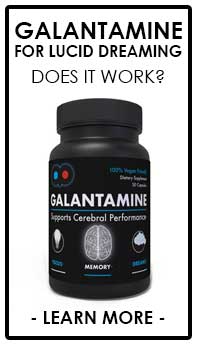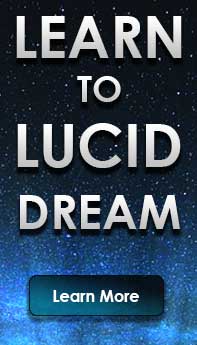
Marijuana, Dreaming, Memory, and Alzheimer’s
With the current state of marijuana legalization in the United States, a lot more research is being conducted on the health benefits and negative effects of the plant and its compounds. Lucky for us there is a lot of positive information coming out of the research and that is some of the things I want to discuss. I wanted to focus on a few key elements that I have been researching, those are how marijuana (cannabis) affects sleep, memory, and Alzheimers.
Here is the Too Long To Read (TLTR) version:
- Marijuana (cannabis) and its compounds increase the amount of a neurotransmitter called GABA that is accessible in the brain.
- GABA effects memory formation in waking life and during sleep.
- After sustaining from marijuana use, memory recall in waking life and dreaming life increases for a period of time.
- Marijuana has shown great promise in the reduction of the effects of Alzheimer’s disease.
Marijuana and Memory
In research dealing with the mind, I find myself looking at chemicals that alter the brain in substantial ways. Specifically, neurotransmitters interest me the most because they are essential to our normal brains daily operation. Neurotransmitters allow our brain to send and receive messages that instruct our brain to do practically everything. For instance, they may allow us to think about what we ate last night or take our next breath or heartbeat.
What is important about neurotransmitters and marijuana is that marijuana increases of a specific neurotransmitter called GABA. GABA does a lot of things just like every other neurotransmitter but it is also involved in memory. Why this is important is that when marijuana increases the amount of GABA that is in the brain, it reduces the ability for individuals to create new memories. It may be a reason why so many “potheads” often can’t remember those deep conversations you had with them or how many Cheetos they ate last night.
The good news is that marijuana has a half-life of about 2 hours and most of the high effects are completely gone in about 6 hours times. This doesn’t mean that tests cant detect marijuana in the urine past 6 hours, it just means that it’s no longer having a biological effect on your brain. This also means that your brain can now recover from over stimulated amount of GABA in your brain and your ability to make new memories should also return to normal.

So why did I just go into this whole spiel about marijuana and GABA? Well, the reason is that memory is strongly dependent on GABA. When you use marijuana your ability to make memories is reduced but after your done using, your ability for new memories could possibly increase. As research continues in the area of marijuana it would be interesting to see if the studies conclude this idea. The main reason that I believe there exists some evidence of improved memory from the use of marijuana is that of something called galantamine.
Galantamine and Marijuana
Galantamine is a drug that is given to people with memory impairments such as Alzheimer’s. Oddly enough galantamine does the opposite effect of marijuana by reducing GABA and increasing another counter neurotransmitter called glutamate. You can easily purchase galantamine on the internet to improve memory and cognitive function. Because I know the relationship between galantamine and memory function and how it improves memory, I find it interesting that marijuana is seen as the memory destroyer. Sure you may act like a goof and not remember what you’re doing at the time, but it seems that your memory should return to normal or even improve after you stop using. The most likely way that this works also is by strengthening other receptors (possibly nicotine) in the brain or the sensitivity of the acetylcholine receptors to work more efficiently.
Marijuana and Alzheimer’s
We know that galantamine is good at improving the memory of Alzheimer’s patients and we know that marijuana also could possibly improve memory recall after use. There have even been studies showing that marijuana would be a great candidate to use for Alzheimer’s patients.
Studies have shown that not only does marijuana seem to improve the negative memory effects of Alzheimer’s and dementia through its GABA increasing effects, as well as acetylcholine breakdown inhibition effects, but also marijuana has additional positive effects on inflammation in the brain and stress on the brain. This may be while cannabis has been shown to help with PTSD and other stress-related events.
More studies need to be conducted before you start giving old grandma some pot brownies with her doctor’s recommendation.
High Times in Dreams
So back to dreams… I love dreams because they are a great way to study the consciousness. Marijuana is interesting to me because many people who are trying to get better at dreaming, or be more aware during their dreams, use galantamine. As we already discussed galantamine is a drug that helps people with memory recall and reduces GABA flowing through the brain. GABA also has a large role in sleep.
The important thing to remember is that when glutamate goes down then you get tired and ready for bed. The same thing happens when you are naturally going to sleep. You forget things that also happen when you are asleep and dream. It’s the reason you can’t remember your dreams and often why people who smoke a lot of marijuana also have troubles remembering their dreams.

From the research, the use of galantamine before going to bed increases awareness, excitability and makes it almost impossible to go to sleep. It also allows me personally to be more aware of my dreams and also makes it so I have a much better dream recall after waking. It would also make sense that you could essentially use marijuana to increase dream recall if used correctly. Using marijuana before going to bed, allowing its GABA releasing mechanism to wear off, and following it up with galantamine near the end of the night could really give you a memory boost.
Continuing Our Exploration
As we get closer and closer to having marijuana federally legal and more and more money can be made by the pharmaceutical and tobacco companies, you will see more and more research being conducted on the plant’s compounds and its effects on sleep and memory.
Lee Adams is a Ph.D. candidate in Jungian Psychology and Archetypal Studies at Pacifica Graduate Institute and host of Cosmic Echo, a lucid dreaming podcast, and creator of taileaters.com, an online community of lucid dreamers and psychonauts. Lee has been actively researching, practicing, and teaching lucid dreaming for over twenty years.




Recent Comments